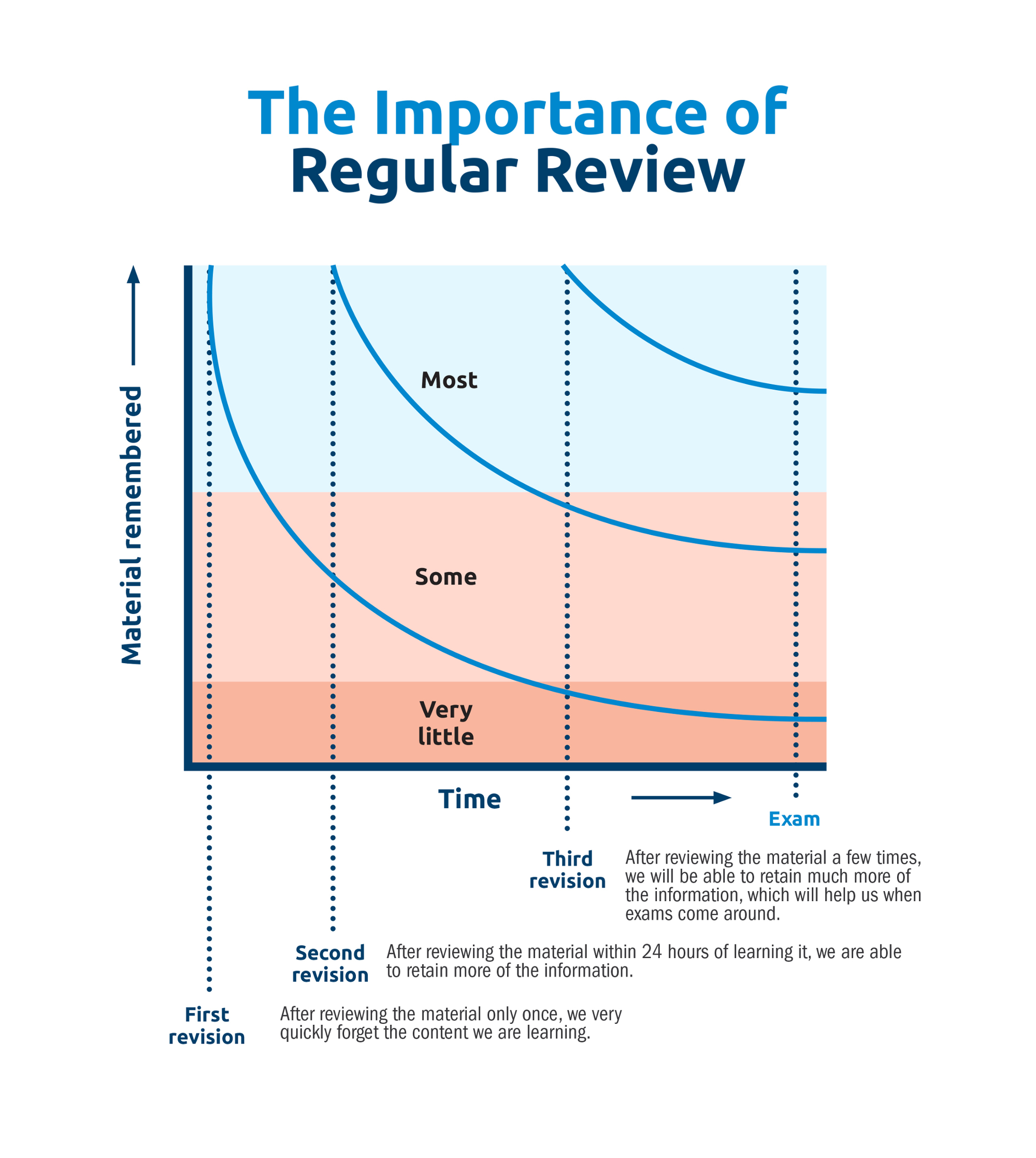Regular review
Video resources
Good study habits involve regular review and spacing our learning.
-
Why cramming doesn't work
 Cramming is the act of studying incessantly just before a test or an exam. Cramming and procrastination are very much related. When we procrastinate and leave our studying to the very last minute, we tend to have to cram to review our material. But when we wait until the last minute to review, we tend to use rather unproductive, passive study strategies, such as:
Cramming is the act of studying incessantly just before a test or an exam. Cramming and procrastination are very much related. When we procrastinate and leave our studying to the very last minute, we tend to have to cram to review our material. But when we wait until the last minute to review, we tend to use rather unproductive, passive study strategies, such as:- Skimming or highlighting notes, rather than doing practice or recall.
- Studying in large blocks of time without giving our brains the opportunity to digest information.
- Staying up late and cutting into our sleep hours to get through everything, rather than getting a good night’s sleep before the exam.
If cramming has become a regular part of your studying routine and is caused by something you can control, take accountability and put a plan in place to prevent it from happening again.
Reference:
Derrington, Kate, Cristy Bartlett, and Anita Frederiks. (20 January 2021). Preparing for Exams. In N. Anderson and W. Hargreaves (Eds.), Academic Success. University of Southern Queensland. Accessed at:
https://usq.pressbooks.pub/academicsuccess/chapter/types-of-exams/ -
Regular review periods throughout the term
When reviewing content, it can be helpful to include daily, weekly, and final review sessions:
Daily Review
After each class, look over your notes and fill in any information you may have missed. Before each class, go over the previous week’s notes to prepare yourself.
Weekly Review
At the end of each week, gather together all of your class notes, summarize important concepts, and make sure that you understand the material covered that week.
Final Review
At least three weeks before your exam, begin extensively reviewing all course material that will likely be tested.
Rather than trying to study everything all at once just before the exam, it is important to prioritize regular review sessions. It might feel like a lot of work upfront, but it will save you time and a whole lot of stress closer to the exam period!
The idea of using regular review is also summarized in the image below.

- After reviewing our materials only once, we quickly forget the content we are trying to learn.
- If we review the material again, ideally within the first 24 hours of learning it, we will be able to retain more of the information we are learning.
- After reviewing the content a few more times (such as a week and a month later), we will be able to retain much more of the information, which will help us remember the content by the time the exam period comes around.
Keep in mind, it can be very difficult for us to absorb content in a short span of time, spreading out study time is better than doing it all at once, and actually aids our memory retention.
References:
Derrington, Kate, Cristy Bartlett, and Anita Frederiks. (20 January 2021). Preparing for Exams. In N. Anderson and W. Hargreaves (Eds.), Academic Success. University of Southern Queensland. Accessed at: https://usq.pressbooks.pub/academicsuccess/chapter/types-of-exams/
Wadsworth, William. (15 March 2019). Ebbinghaus’ Forgetting Curve Explained: The Importance of Spaced Learning for Memory. Exam Study Expert. Accessed at: https://examstudyexpert.com/ebbinghaus-forgetting-curve/
